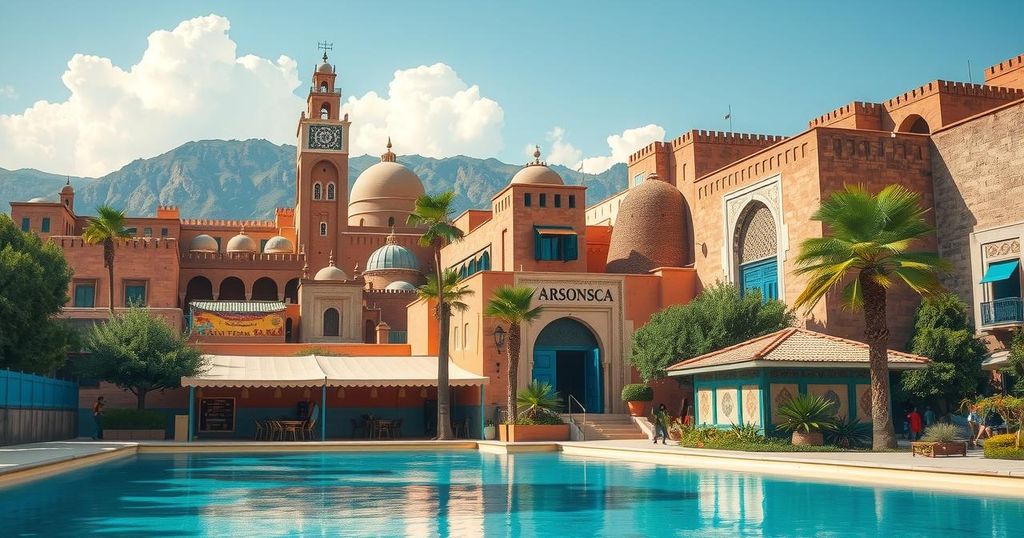The IMF has approved $496 million in funding for Morocco, emphasizing the country’s resilient economy despite challenges like a recent earthquake and drought. This funding is part of a broader $1.24 billion Resilience and Sustainability Facility aimed at supporting the green transition and enhancing economic stability. Despite projected growth, high unemployment persists, indicating the need for ongoing structural reforms in Morocco.
The International Monetary Fund (IMF) has authorized a disbursement of $496 million for Morocco. This funding decision highlights the resilience of the Moroccan economy in the face of adverse shocks, which is a reflection of the nation’s strong economic policies, according to Kenji Okamura, the IMF’s Deputy Managing Director and Acting Chairman. This approval followed the successful completion of the third review of the Resilience and Sustainability Facility (RSF) arrangement with the country.
The third review’s completion signifies that the total disbursement under the RSF arrangement amounts to approximately $1.24 billion. Approved in September 2023, this 18-month strategy aims to assist Morocco in transitioning to a green economy while enhancing its resilience toward natural disasters. This move came shortly after a devastating 6.8-magnitude earthquake shook the country, claiming nearly 3,000 lives and marking the deadliest seismic event in over sixty years.
The IMF indicated that Morocco’s economy is expected to experience a modest growth slowdown, with projections of 3.2 percent in 2024 due to ongoing drought conditions. Meanwhile, anticipated infrastructure projects and structural reforms are expected to bolster growth to about 3.7 percent in the coming years. Mr. Okamura emphasized that these reforms are vital for achieving stronger and more inclusive economic growth and creating job opportunities.
Despite the positive outlook, the IMF noted persistent high unemployment rates at approximately 13 percent, primarily resulting from setbacks in the agricultural sector. However, a decrease in inflation has enabled the central bank to implement interest rate cuts, lowering the rate to 2.25 percent. The central bank forecasts inflation to potentially decrease further, stabilizing around 2 percent within the next two years.
IMF representatives conducted a mission in Rabat last month, during which they discussed the significance of structural reforms aimed at enhancing job growth and acknowledged robust domestic demand as a factor in stimulating economic expansion. The Fund commended Morocco’s improvements in its tax system and the evaluation of climate change risks within the medium-term fiscal framework. Progress was also noted in the Mohammed VI Investment Fund, which aims to facilitate equity financing for small and medium-sized enterprises.
This third review marked the conclusion of Morocco’s RSF program, with six out of seven planned measures successfully implemented. Mr. Okamura stated that these measures would improve the management of scarce water resources, further liberalize the energy sector, and address climate-related fiscal and financial stability risks. The implementation of a carbon tax, however, was not progressed due to the need for a thorough impact analysis by Moroccan authorities.
In conclusion, the IMF’s approval of $496 million in funding for Morocco underscores the country’s resilient economic policies amid adversity. The funding is part of a broader strategy aimed at transitioning to a green economy and mitigating the impacts of natural disasters following a severe earthquake. While growth prospects appear positive, challenges such as high unemployment persist, necessitating continued structural reforms. This situation underscores the importance of adaptive economic strategies in the face of climatic and economic uncertainties.
Original Source: www.thenationalnews.com






